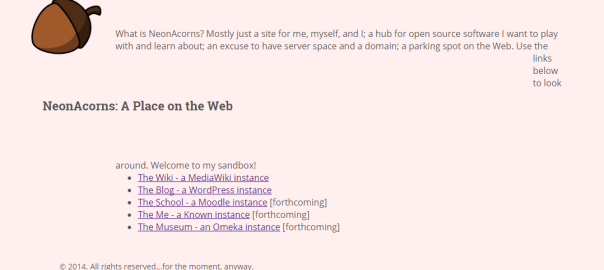
There I was, listening to Alton Brown dissect the history of brunch in episode 232 (14.4) of Good Eats, and I learn for the first time ever that the first known use of the word brunch in print was in the article “Brunch: A Plea” by one Guy Beringer, published in Hunter’s Weekly in 1895.
That sort of thing excites me. “I’d like to read that article!” say I to myself.
Confidently, I typed "Brunch: A Plea" into my search bar. Result: lots of blog posts, magazine articles, blog posts masquerading as magazine articles, and a newspaper item or two.
“Oh, ha ha,” I think. “That makes sense.” I open a few likely ones from top results. Smithsonian. Mental Floss. Lots of links, but none to the source, and always the same quote, pulled by a Wikipedian from a 1998 New York Times article:
Instead of England’s early Sunday dinner, a postchurch ordeal of heavy meats and savory pies, why not a new meal, served around noon, that starts with tea or coffee, marmalade and other breakfast fixtures before moving along to the heavier fare? By eliminating the need to get up early on Sunday, brunch would make life brighter for Saturday-night carousers. It would promote human happiness in other ways as well. “Brunch is cheerful, sociable and inciting.” Beringer wrote. “It is talk-compelling. It puts you in a good temper, it makes you satisfied with yourself and your fellow beings, it sweeps away the worries and cobwebs of the week.”
Hmm. Oh my.
filetype:pdf "brunch, a plea"
Uh-oh. Wikipedia references and external links: no. Google Books: no. Gutenberg: no. Library of Congress: no. WorldCat: no.
This is getting serious. And yet…
“Fool!” think I. “Work from the Wikipedia references! Track it down!”
Well, here they are:

Seven is the aforementioned NYT article. Six is of no use. Five, in a gentle diatribe against over-cautious imprecision in the dating of word origins in dictionaries, offers this:
For brunch, The Random House Dictionary says “1895-1900,” yet it is well known that Guy Beringer, the Englishman who coined the word, first used it in print in his article entitle “Brunch: A Plea,” which appears in Hunter’s Weekly in 1895. [Bold emphasis mine.]
Golly.
So here it is: “Brunch: A Plea”: A Plea: somebody, please, track down the original article and give it to the Internet. We need this. I believe this particular story is factual; no real reason to doubt it and the Times piece quotes from it in several places. Nevertheless, the first-page-result writing on brunch in the past fifteen or twenty years knows about a single paragraph of Beringer and is quick to attribute his words to an article no one seems able to produce. Even Good Eats offered up the ubiquitous paragraph in full, leaving me little better off now than when I began.
Find this article, you win my thanks…and you restore the rights of brunching know-it-alls everywhere to tell Beringer’s story without shame.

